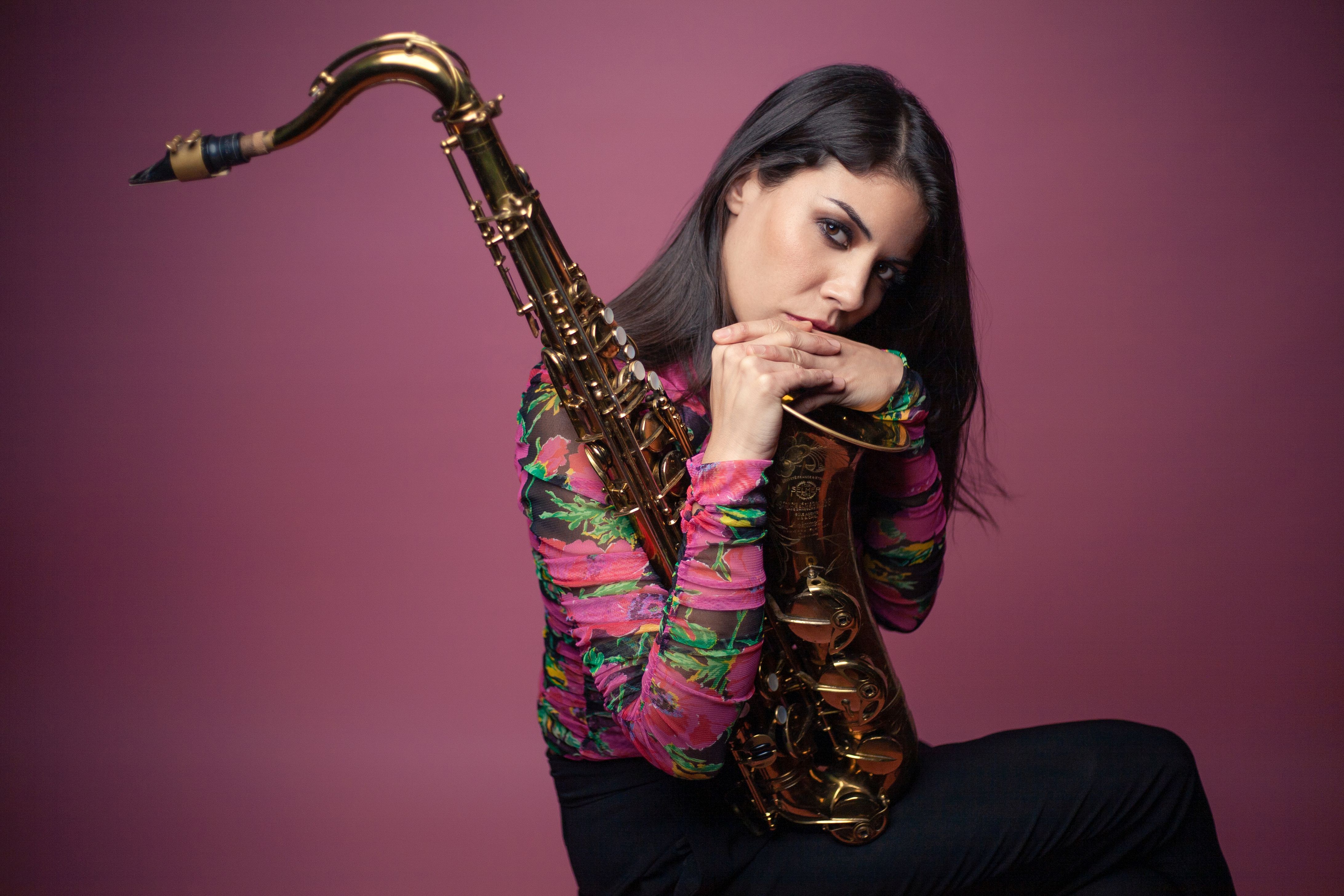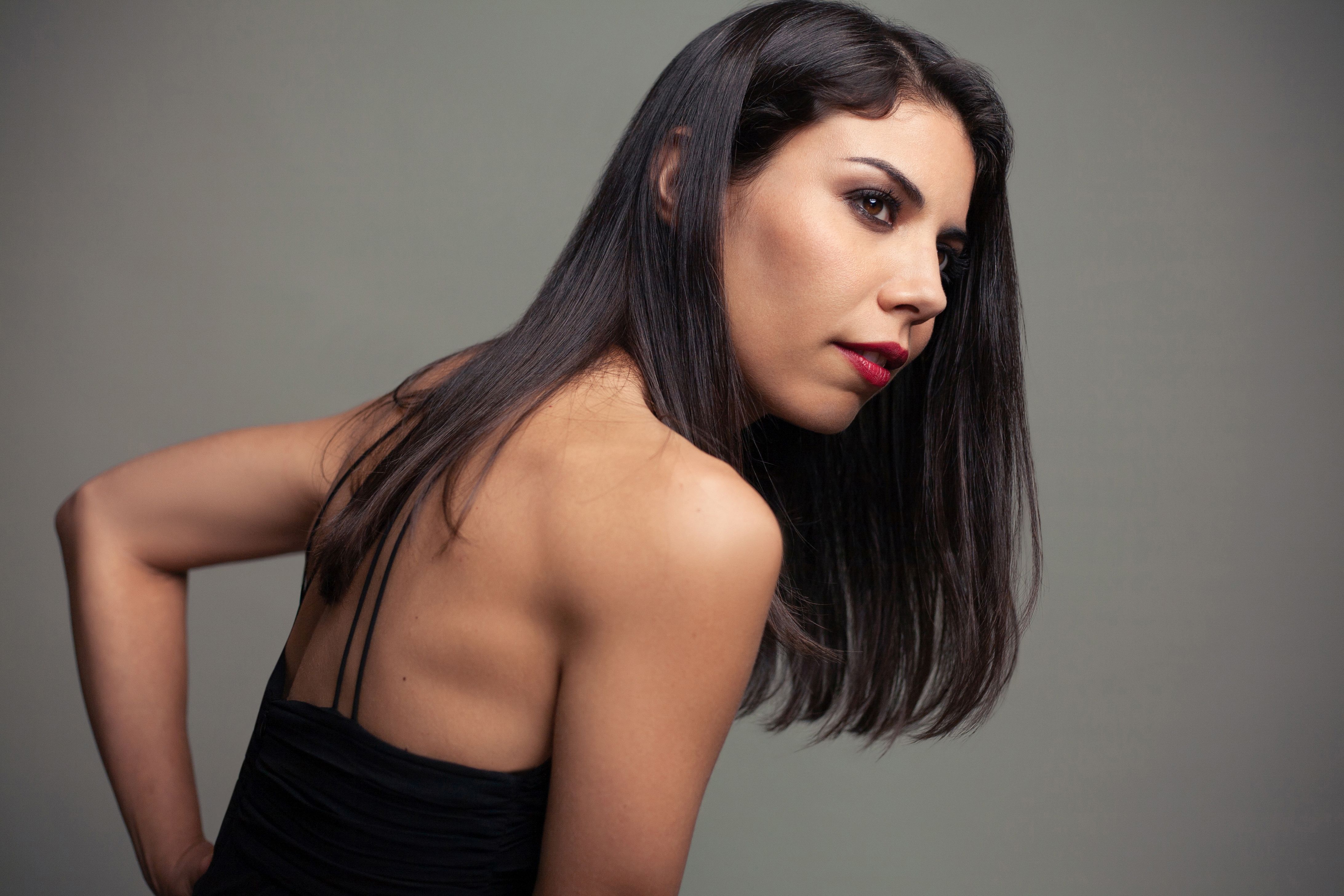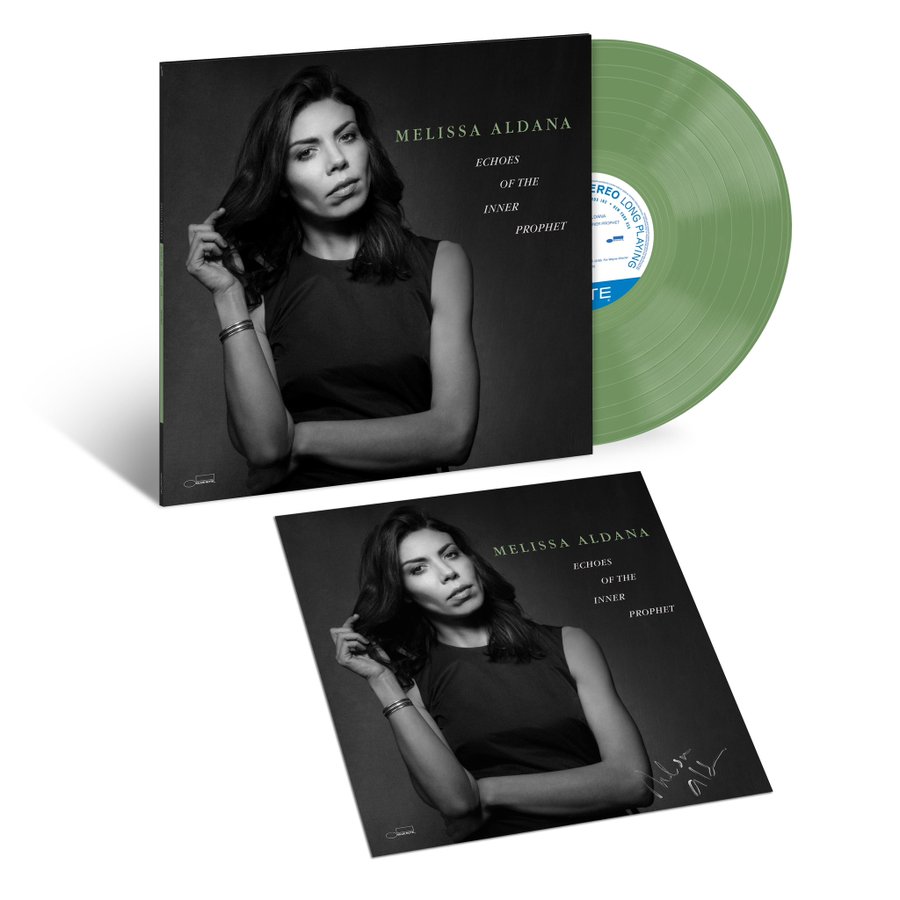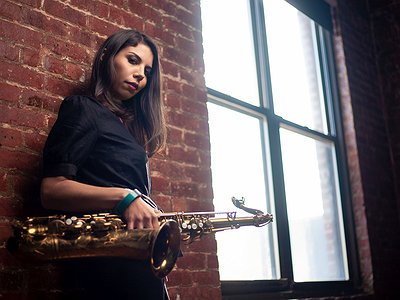Name: Melissa Aldana
Occupation: Composer, saxophonist, improviser
Current release: Melissa Aldana's Echoes Of The Inner Prophet is out via Blue Note.
Recommendations: I will recommend The Bluest Eye by Toni Morrison.
I also love poetry and there is a really beautiful poet, very famous, his name is Pablo Neruda. So I highly recommend to read any of his poems, they are all very beautiful.
If you enjoyed this Melissa Aldana interview and would like to know more about her music, visit her official homepage. She is also on Instagram, and Facebook.
Do you think that some of your earliest musical experiences planted a seed for your interest in improvisation?
Absolutely, I come from a musical family, my father and grandfather are both saxophone players and I grew up listening to them practicing all day at home and doing lessons.
I am sure that has had a huge influence on the way that I think about music and the way I practice and the way I go about the process itself as a musician.
When did you first consciously start getting interested in musical improvisation? Which artists, teachers, albums or performances involving prominent use of improvisation captured your imagination in the beginning?
I think that when I was around 12 I had a better understanding of who I liked as a musician. Sonny Rollins was always a huge reference to me, Charlie Parker, Michael Brecker - those were all of my father’s favourite musicians back then.
They definitely had a huge impact on the way that I think about music, improvise and write, even to this day.
Tell me about your instrument and/or tools, please. What made you seek it out, what makes it “your” instrument, and what are some of the nost important aspects of playing it?
My instrument is a tenor saxophone. I use my Marantz mouthpiece and then Boston sax reeds.
I had this instrument since I was a kid, and to me the best instruments, the best saxophones are Selmer and, especially from that time period, balanced. super action, Mark XI. A lot of those saxophones where made with bells - the metal of the bells from World War II - so to me there is a lot of energy and a lot of history in that metal.
I think it’s something that I can feel when I play it.
[Read our Jonathan Reisin interview about the saxophone]
How would you describe your own relationship with your instrument – is it an extension of your self/body, a partner and companion, a creative catalyst, a challenge to be overcome, something else entirely?
My relationship with my instrument is very intimate. It’s very personal and it’s very profound.
I feel my instrument as a part and an extension of my body and a way for me to communicate feelings that I don’t necessarily know how to comminate with words. My instrument is a way to release energy, release emotions and find a sense of self within that process.
Derek Bailey defined improvising as the search for material which is endlessly transformable. What kind of materials have turned to be particularly transformable and stimulating for you?
To me, things that have transformed and stimulate me transcriptions. I have spent long periods of time going into depth into specific musicians - not just the notes they’re playing but the emotional content of how they’re playing, how they communicate their ideas and how they pull them together.
So to me through years of transcriptions I can see how all of those solos and all of those hours spent and also just listening to music have influenced me in so many different ways.
Do you feel as though there are at least elements of composition and improvisation which are entirely unique to each? Based on your own work or maybe performances or recordings by other artists, do you feel that there are results which could only have happened through one of them?
I think that like we are all coming from somewhere else. All of our influences and experiences, which are personal, make our work personal and unique because we are all different human beings.
So the results couldn’t have happened without that element but also without all those other influences, if that makes sense?
When you're improvising, does it actually feel like you're inventing something on the spot – or are you inventively re-arranging patterns from preparations, practise or previous performances? What balance is there between forgetting and remembering in your work?
When I'm improvising, I'm truly on the spot and I'm inventing something in relationship to or reacting to something in relationship to what is happening. Every situation is unique itself.
Of course it's based on years of work, transcriptions, technique and whatever I had to do in order to express myself fully in that way.
I will say you have to think about it like a language. Like when you study a language you can talk and you can write questions and answers. To me this is a very similar process.
Melissa Aldana Interview Image by Eduardo Pavez Goye
Are you acting out parts of your personality in your improvisations which you couldn't or wouldn't through other musical approaches? If so, which are these? What, would you say, are the key ideas behind your approach to improvisation?
Of course my personality is reflected in my music. To me the personal process of knowing oneself is very related to the process of growing as a musician. That has to do with allowing myself to be vulnerable.
Being vulnerable and being open to whatever is going to happen in the moment is a very important aspect for me.
In terms of your personal expression and the experience of performance, how does playing solo compare to group improvisations?
Playing solo is very different than playing in a group. But at the same time when I’m playing solo I’m still hearing the space, I’m still hearing a band behind me, I’m still hearing harmony and rhythm. In this way those two are connected, and when I’m playing with a trio, I’m still hearing orchestration, or playing quartet or hearing piano.
So, to me, even though they are very different, the way that I think about them and the way that I go about them are very similar. Which is always thinking about the big orchestration of how I am paying.
In your best improvisations, do you feel a strong sense of personal presence or do you (or your ego) “disappear”?
I will say I disappear but I feel present at the same time. I kind of feel very present in the moment and what is happening in relationship to that.
I think to do that you have to forget about your ego.
Melissa Aldana Interview Image by Eduardo Pavez Goye
In a live situation, decisions between creatives often work without words. From your experience and current projects, what does this process feel like and how does it work?
I think that a lot of it has to do with the trust, being able to have a band that has great trust, that allows us not to have to communicate things with words and knowing each other very well.
So to me it has to do with really allowing yourself to be in the moment, with my band and with any other situation, really.
Stewart Copeland said: “Listening is where the cool stuff comes from. And that listening thing, magically, turns all of your chops into gold.” What do you listen for?
For me, I listen for honesty in the music and something that can transport me into a different place and take me out of my mind state and make me feel something.
When the music is good I think that is where it usually takes you.
There can be surprising moments during improvisations – from one of the performers not playing a single note to another shaking up a quiet section with an outburst of noise. Have you been part of similar situations and how did they impact the performance from your point of view?
Yeah absolutely. I think that that has to do with the fact that everyone is in the same place at the same time and everyone is very connected with what is happening with the music.
The way that this impacts the performance, is that it takes it to another level to me. It’s a level of inspiration and freedom that everyone is only able to achieve together. 
Melissa Aldana Echoes of the Inner Prophet album cover (c) Blue Note
I have always been fascinated by the many facets of improvisation but sometimes found it hard to follow them as a listener. Do you have some recommendations for “how to listen” in this regard?
I will say you just have to be open minded to the music and just listen and absorb rather than judging it - a willingness to just listen with an open heart.
In a way, improvisations remind us of the transitory nature of life. When an improvisation ends, is it really gone, just like a cup of coffee? Or does it live on in some form?
I think that the only way that improvisation can stay with us is through recordings.
We are very lucky to portray those special moments which are unique to every situation.







